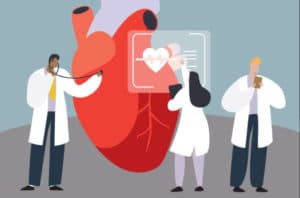What is a Plastic Surgeon?
Plastic surgeons are focused on reconstructive procedures. They can see patients who have conditions like birth disorders, injuries, illnesses, or burns.
Many plastic surgeons choose to become cosmetic surgeons and do procedures to change a patient’s appearance or aesthetic. But not all plastic surgeons are also cosmetic surgeons.
Education and Training
Plastic surgery is one of the most competitive routes in the medical field. The training can take more than a decade. After medical school, prospective plastic surgeons can take one of two paths:
Candidates then take an exam to practice plastic surgery in their state.
They can continue their education with a 1- or 2-year fellowship in areas like:
What Does a Plastic Surgeon Do?
Plastic surgeons can repair or reconstruct any part of the body except the central nervous system. Some of the procedures they do are:
Plastic surgeons see patients on a daily basis to discuss and diagnose issues. They perform any necessary operations and monitor their patients afterward. They usually work in clinics, offices, or hospitals.
Reasons to See a Plastic Surgeon
You may need to see a plastic surgeon about a physical problem. Your primary care physician will probably refer you to them.
If you want to change something about the way you look, see a cosmetic surgeon. Any licensed physician is legally allowed to do cosmetic surgery. Make sure you find one who has the right training and licensing.
Plastic surgery restores and improves function, as well as appearance. It can involve surgery on any part of the anatomy, except the central nervous system, including:
Doctors who do plastic surgery
It’s important to select a doctor who is certified in plastic surgery by the American Board of Plastic Surgery. Generally, a surgeon who is board-certified in plastic surgery has graduated from an accredited medical school and has completed at least 5 years of graduate medical education. This usually includes 3 years of general surgery and 2 years of plastic surgery. In addition, the surgeon must practice plastic surgery for 2 years and pass comprehensive written and oral exams to become board-certified. Board certification is renewed every 10 years to ensure ongoing competency in the specialty.
What does plastic surgery include?
Plastic surgery includes both reconstructive and aesthetic (cosmetic) procedures:
Reconstructive plastic surgery
In general, reconstructive surgery is done on abnormal structures of the body that may be caused by:
This type of surgery is usually done to improve function, but may also be done to change appearance.
Cosmetic (aesthetic) plastic surgery
Cosmetic surgery is done to repair or reshape otherwise normal structures of the body, generally, to improve appearance.
**What is a Plastic Surgeon?**
**Introduction:**
Plastic surgery is a specialty within medicine that focuses on the repair, reconstruction, and enhancement of the body’s appearance. Plastic surgeons perform a wide range of procedures, including cosmetic surgeries, reconstructive surgeries, and burn treatments.
**Definition:**
A plastic surgeon is a medical doctor who has undergone specialized training in the field of plastic surgery. They have extensive knowledge in anatomy, physiology, and pathology, as well as surgical techniques. Plastic surgeons work with patients to improve their physical appearance and overall well-being.
**Scope of Practice:**
* **Cosmetic Surgery:** Enhances the aesthetic appearance of the body, including procedures such as breast augmentation, liposuction, and rhinoplasty.
* **Reconstructive Surgery:** Repairs damaged or deformed tissues following accidents, trauma, burns, or disease.
* **Burn Treatment:** Provides specialized care for severe burns, including debridement, grafting, and rehabilitation.
* **Hand Surgery:** Deals with injuries and conditions affecting the hand, including microsurgery, trauma repair, and nerve reconstruction.
* **Craniofacial Surgery:** Corrects deformities and injuries to the face, head, and neck.
**Qualifications and Training:**
To become a plastic surgeon, physicians must complete:
* Medical school
* Residency training in general surgery
* Fellowship training in plastic surgery (generally 3-5 years)
During their training, plastic surgeons develop expertise in surgical techniques, patient assessment, and post-operative care.
**Career Paths:**
Plastic surgeons can pursue careers in private practice, academic institutions, and hospitals. They may also specialize in specific areas of plastic surgery, such as cosmetic surgery, reconstructive surgery, or burn treatment.
**Patient Considerations:**
When considering plastic surgery, it is essential to:
* Seek consultation with a board-certified plastic surgeon
* Discuss realistic expectations and potential risks
* Understand the surgical procedure and recovery process
* Ensure that the surgeon is experienced and has a proven track record
**Benefits of Plastic Surgery:**
* Improved appearance and self-esteem
* Enhanced confidence and quality of life
* Improved function and mobility
* Reduced pain and discomfort
* Correction of deformities and injuries
**Conclusion:**
Plastic surgeons are highly skilled medical professionals who play a vital role in enhancing the appearance and restoring the function of the human body. They perform a wide range of procedures, including cosmetic surgeries, reconstructive surgeries, and burn treatments. With their extensive training and experience, plastic surgeons help patients achieve their desired aesthetic and functional goals.








Fosse praticato
Quello che è fatto